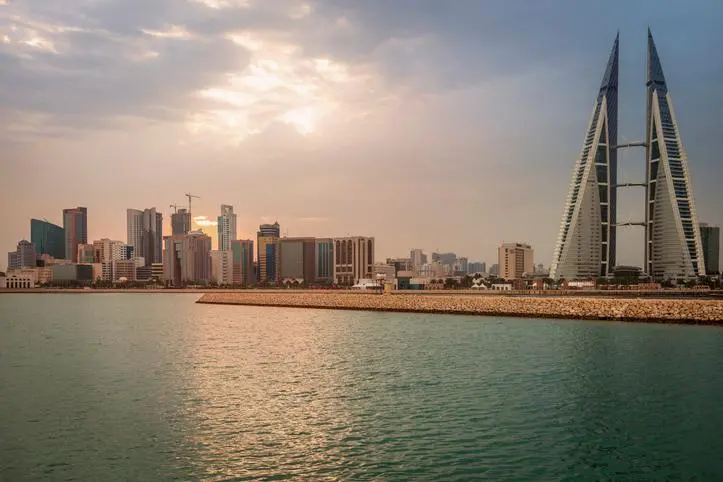PHOTO
CONCRETE steps taken by the government to tackle air pollution and reduce emissions have paid off with Bahrain showing a significant improvement in a new air quality index.
Swiss technology company IQAir released it 2023 report that ranks countries with poor air quality.
The 6th Annual World Air Quality Report reveals troubling details of the world’s most polluted countries, territories and regions during 2023.
Real-time data from more than 30,000 air quality monitoring stations across 7,812 locations in 134 countries, including Bahrain and neighbouring Gulf states, were analysed by the company’s air quality scientists.
The findings reveal that a total of 124 (92.5 per cent) out of 134 countries and regions exceeded the World Health Organisation’s (WHO) annual PM2.5 guideline value of 5 µg/m3 or less.
PM2.5, fine particulate matter of 2.5 micrometres or less in diameter, is the most dangerous pollutant because it can penetrate the lung barrier and enter the blood system, causing cardiovascular and respiratory disease and cancers.
The concentration of an air pollutant is given in microgrammes per cubic metre of air, or µg/m3.
In the latest report, Bahrain is ranked 12th among the 134 countries with 39.2 µg/m3. In the 2022 report, the kingdom was among the five most polluted countries with 66.6 µg/m3 which was more than 13 times higher than the WHO guideline.
A lower µg/m3 value indicates good air quality as stated in the report.
However, the kingdom is still not out of the woods as based on the latest assessment it still is 7.8 times more than the WHO annual air quality guideline.
Data related to Gulf states shows that the UAE is ranked in the seventh position with 43 µg/m3 followed by Kuwait in 11th spot (39.9 µg/m3), Bahrain, Qatar (13 and 37.6 µg/m3) and Saudi Arabia (30 and 26.5 µg/m3).
Oman is not included in the report despite being ranked as the sixth most polluted country in 2022 due to lack of data availability.
Seven countries met the WHO annual PM2.5 guideline: Australia, Estonia, Finland, Grenada, Iceland, Mauritius and New Zealand.
The top five most polluted countries in 2023 were:
Bangladesh (79.9 µg/m3); Pakistan (73.7 µg/m3); India (54.4 µg/m3); Tajikistan (49.0 µg/m3) and Burkina Faso (46.6 µg/m3).
Begusarai, a city of half a million people in northern India’s Bihar state, was the world’s most polluted city last year with an average annual PM2.5 concentration of 118.9 – 23 times the WHO guideline.
This was followed in the IQAir rankings by the Indian cities of Guwahati, Assam; Delhi and Mullanpur, Punjab.
The most polluted major US cities were Columbus, Ohio, Beloit and Wisconsin.
The report also features a regional capital city ranking with Kuwait City ranked at 13 followed by Manama (14), Abu Dhabi ( 15), Doha (16) and Riyadh (28).
Other findings in the report show that Africa remains the most under-represented continent, with a third of the population still lacking access to air quality data.
The region of Central and South Asia was home to the top 10 most polluted cities in the world.
“A clean, healthy, and sustainable environment is a universal human right,” said IQAir Global chief executive Frank Hammes.
“In many parts of the world the lack of air quality data delays decisive action and perpetuates unnecessary human suffering.
“Air quality data saves lives.
“Where air quality is reported, action is taken, and air quality improves.”
For the first time in the history of this report, Canada was the most polluted country in Northern America, with the region’s 13 most polluted cities located within its borders.
Bahrain has committed to achieve the National Afforestation Plan’s goal of increasing greenery and doubling the number of trees by 2035.
The plan includes quadrupling mangrove trees by 2035 as a commitment to reducing climate change and reaching carbon neutrality by 2060.
The GDN reported in December last year that 749,000 mangroves were planted by the end of November last year, achieving 163 per cent of the original goal of 460,000 by the end of 2023.
In 2022, Bahrain had exceeded its target of planting 140,000 trees by seven per cent as the country continued with its afforestation programme.
Copyright 2022 Al Hilal Publishing and Marketing Group Provided by SyndiGate Media Inc. (Syndigate.info).





















